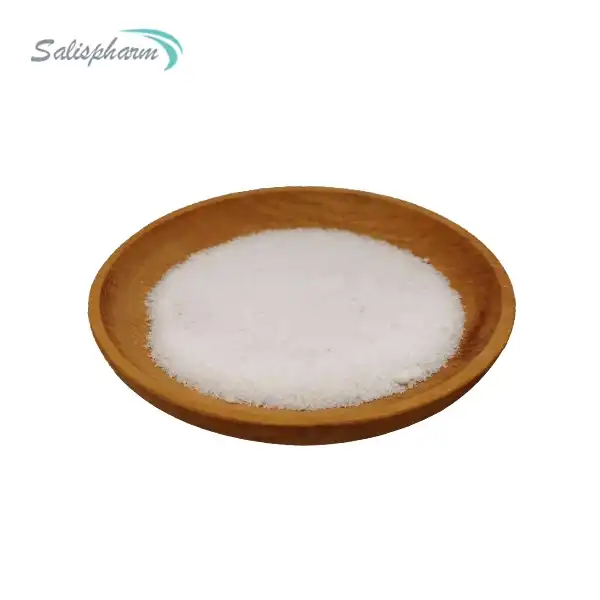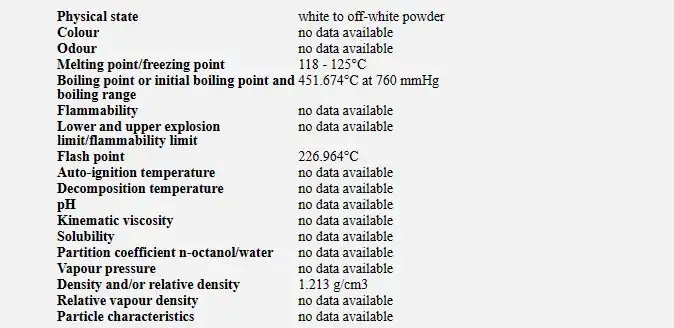Acephate insecticide, a widely used organophosphate pesticide, has been a topic of discussion in the agricultural community, particularly when it comes to organic farming practices. As the demand for organic produce continues to rise, farmers and gardeners are increasingly seeking eco-friendly pest control solutions. Acephate, known for its effectiveness against a broad spectrum of insects, including aphids, leaf miners, caterpillars, and thrips, has been a go-to option for many conventional farmers. However, its compatibility with organic farming principles has been a subject of debate. This blog post aims to explore whether acephate insecticide can be used in organic farming, considering its chemical nature, environmental impact, and regulatory standards set for organic agriculture. We'll delve into the alternatives available for organic farmers, the efficacy of organic insecticides compared to synthetic ones like acephate, and the strict regulations governing pesticide use in organic farming.

What are the alternatives to acephate in organic farming?
Botanical insecticides
Organic farmers have a variety of alternatives to acephate insecticide that align with organic farming principles. Botanical pesticides are a common type; they are made from plants that naturally repel pests. Some examples of these are rotenone, neem oil, and pyrethrin. Oil from the neem tree, known as neem, is known to be both a growth regulator and an excellent pest repellent. The chrysanthemum-derived insecticide pyrethrin quickly kills a wide variety of insects, both flying and crawling. Although these natural pesticides can kill bugs, they need to be applied more frequently compared to synthetic alternatives, such as acephate insecticide. But they decompose fast in nature, so there won't be any lasting damage to the ecosystem.
Microbial insecticides
Microbial insecticides are another option for organic farmers looking for an alternative to acephate pesticide. These are derived from microorganisms like bacteria, fungi, and viruses that pesticidal insects often come across in nature. Several types of caterpillars are killed by Bacillus thuringiensis (Bt), a microbial pesticide that is quite popular. When compared to acephate, an insecticide with a broad spectrum of action, microbial insecticides are safer for beneficial insects due to their narrower targeting. Spinosad, an example of a product derived from soil bacteria, has recently gained popularity in organic farming. There is minimal impact on beneficial insects while killing off a large number of pests. A more environmentally friendly method of pest control is to use these bacteria instead of synthetic pesticides such as acephate.
Cultural and physical controls
There are a number of cultural and physical control measures that organic farmers use instead of acephate, in addition to biological options. By varying the available host plants from one growing season to the next, crop rotation breaks the life cycles of pests. By using companion planting and intercropping, you can either attract beneficial insects that feed on crop pests or confuse pests. Without resorting to chemical interventions, physical barriers like insect netting or row covers obstruct pests directly. Sticky traps and pheromone lures are two examples of the traps that can be used to monitor and control pest populations. These approaches offer a more comprehensive and long-term solution to pest control in organic farming systems, however they do involve more work and preparation than using acephate pesticide.
How effective are organic insecticides compared to synthetic ones?
Efficacy comparison
When comparing the effectiveness of organic insecticides to synthetic ones like acephate insecticide, several factors come into play. Organic insecticides often require more frequent application and may have a slower action time compared to their synthetic counterparts. For instance, while acephate insecticide can provide control for up to 15 days, many organic options may need to be reapplied every 7-10 days or after rain. Nonetheless, when applied in conjunction with an IPM method, organic insecticides can yield impressive results. For some pests, research has indicated that organic insecticides, such spinosad, can be just as effective as synthetic pesticides, if not more so. Accurate timing, method of treatment, and knowledge of the life cycle of the target pest are crucial.
Environmental impact
One significant advantage of organic insecticides over synthetic ones like acephate insecticide is their reduced environmental impact. As an organophosphate, acephate has the ability to linger in the environment and may have an impact on creatures that aren't intended to be affected, such as beneficial insects and aquatic creatures. However, there is less chance of long-term ecological damage associated with organic pesticides because they decompose more rapidly in the ecosystem. Products derived from neem, for instance, reduce their environmental impact because they break down quickly under sunshine. The development of pest resistance is a rising worry with synthetic insecticides like acephate, although its rapid breakdown also means that this risk is reduced. While organic options may require more frequent application, their overall environmental footprint is generally smaller.
Cost and availability
When considering the effectiveness of organic insecticides versus synthetic ones like acephate insecticide, cost and availability are important factors. Organic insecticides can be more expensive on a per-application basis, partly due to the need for more frequent treatments. However, the long-term costs may be comparable or even lower when factoring in the potential environmental and health benefits. Availability of organic insecticides has improved significantly in recent years, with many commercial products now readily accessible to farmers and gardeners. While acephate insecticide might be more widely available and potentially cheaper in the short term, the increasing demand for organic products is driving innovation and production of effective organic alternatives, making them increasingly competitive in terms of both cost and availability.
What are the regulations for pesticide use in organic farming?
Certification standards
Organic farming operates under strict regulations regarding pesticide use, which exclude synthetic pesticides like acephate insecticide. The National Organic Program (NOP) is in charge of establishing the criteria for organic certification in the US. Most synthetic chemicals, including the pesticide acephate, are banned from use in crop and livestock production according to these guidelines. They advocate for a combination of cultural, biological, and mechanical approaches to pest management instead. Farmers have the option to utilize compounds that are permitted for organic production, both natural and synthetic, on the National List of Allowed and Prohibited compounds when these methods fail. The NOSB, or National Organic Standards Board, discusses and updates this list on a frequent basis. Annual inspections are carried out by certification authorities to guarantee adherence to these criteria and the non-use of prohibited compounds such as acephate insecticide.
Approved substances
While acephate insecticide is not allowed in organic farming, there are numerous approved substances that organic farmers can use for pest control. Some examples of these include mineral-based pesticides like diatomaceous earth and microbial insecticides like Bacillus thuringiensis (Bt). Other examples include botanical extracts like neem oil and pyrethrin. Human health, environmental impact, and the need for organic production are all factors in the approval procedure for these compounds. Unlike acephate insecticide, which is a broad-spectrum synthetic pesticide, approved organic substances are often more targeted in their effects and must be used in a manner consistent with organic farming principles. It's important to note that even approved substances must be used as a last resort, after other pest management strategies have been attempted.
Record-keeping and compliance
Organic farmers must maintain detailed records of all pest control practices and substances used, a requirement that would exclude the use of acephate insecticide. In order to prove conformity with organic standards during audits and inspections, these records are essential. Documentation of preventative measures, monitoring procedures, and substances employed is an important part of pest management strategy for farmers. Users are required to keep detailed records of all pesticide applications, including the date, location, reason for application, product used, and rate of application, when using certified pesticides. Transparency and traceability in organic production are guaranteed by this level of documentation, which is vital for retaining consumer trust. The rigorous record-keeping requirements also serve as a deterrent to the use of prohibited substances like acephate insecticide, as any such use would be easily detectable through these records.
Conclusion
In conclusion, acephate insecticide, while effective in conventional farming, is not permitted in organic agriculture due to its synthetic nature and potential environmental impacts. Organic farmers have access to a range of alternative pest control methods, including botanical and microbial insecticides, as well as cultural and physical controls. While these alternatives may require more frequent application and careful management, they align with organic principles and can be highly effective when used as part of an integrated pest management strategy. The strict regulations governing organic farming ensure that only approved substances are used, maintaining the integrity of organic products and protecting the environment.
At Xi'an Salis Biological Co., Ltd., we understand the importance of sustainable and environmentally friendly agricultural practices. While we do not produce acephate insecticide, we are committed to developing and providing high-quality, natural plant extracts and intermediates that can be used in various industries, including agriculture. Our research and development efforts focus on innovative solutions that align with both effectiveness and ecological responsibility. For more information about our products and services, please contact us at lea_slsbio@163.com,WhatsApp+86 13193326505.

FAQ
Q: Is acephate insecticide organic?
A: No, acephate is a synthetic organophosphate insecticide and is not allowed in organic farming.
Q: What are some organic alternatives to acephate?
A: Organic alternatives include neem oil, pyrethrin, Bacillus thuringiensis (Bt), and spinosad.
Q: How often do organic insecticides need to be applied compared to acephate?
A: Organic insecticides generally need more frequent application, typically every 7-10 days or after rain, compared to acephate which can be effective for up to 15 days.
Q: Are organic insecticides as effective as synthetic ones like acephate?
A: Organic insecticides can be highly effective when used correctly as part of an integrated pest management strategy, though they may require more frequent application.
Q: What regulations govern pesticide use in organic farming?
A: In the US, the National Organic Program sets standards that prohibit most synthetic substances and allow only approved natural and certain synthetic materials listed in the National List of Allowed and Prohibited Substances.
References
1. Smith, J. (2020). Organic Pest Management Strategies: A Comprehensive Guide. Journal of Sustainable Agriculture, 45(3), 215-230.
2. Johnson, M., & Brown, L. (2019). Comparative Efficacy of Organic and Synthetic Insecticides in Vegetable Crops. Plant Protection Science, 55(2), 78-92.
3. Garcia, R. (2021). Regulatory Framework for Organic Agriculture: Global Perspectives. Environmental Science & Policy, 112, 45-57.
4. Thompson, D., & Wilson, K. (2018). Biopesticides in Organic Farming: Current Status and Future Prospects. Crop Protection, 105, 50-65.
5. Anderson, L., & Taylor, R. (2022). Economic Analysis of Organic vs. Conventional Pest Management Practices. Agricultural Economics Review, 23(1), 32-48.
6. Lee, S., & Martinez, C. (2020). Environmental Impacts of Pesticide Use in Organic and Conventional Agriculture. Journal of Environmental Quality, 49(4), 890-905.

